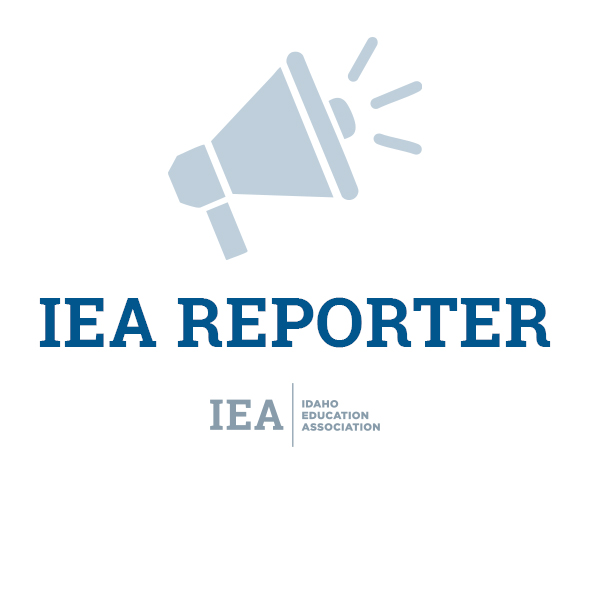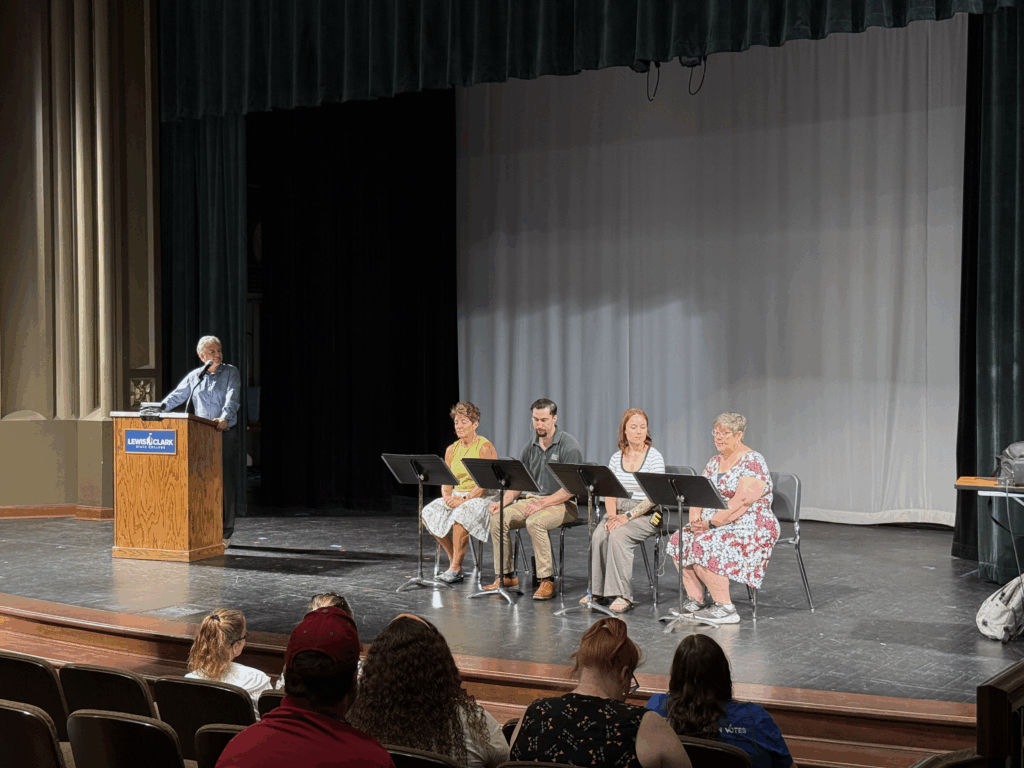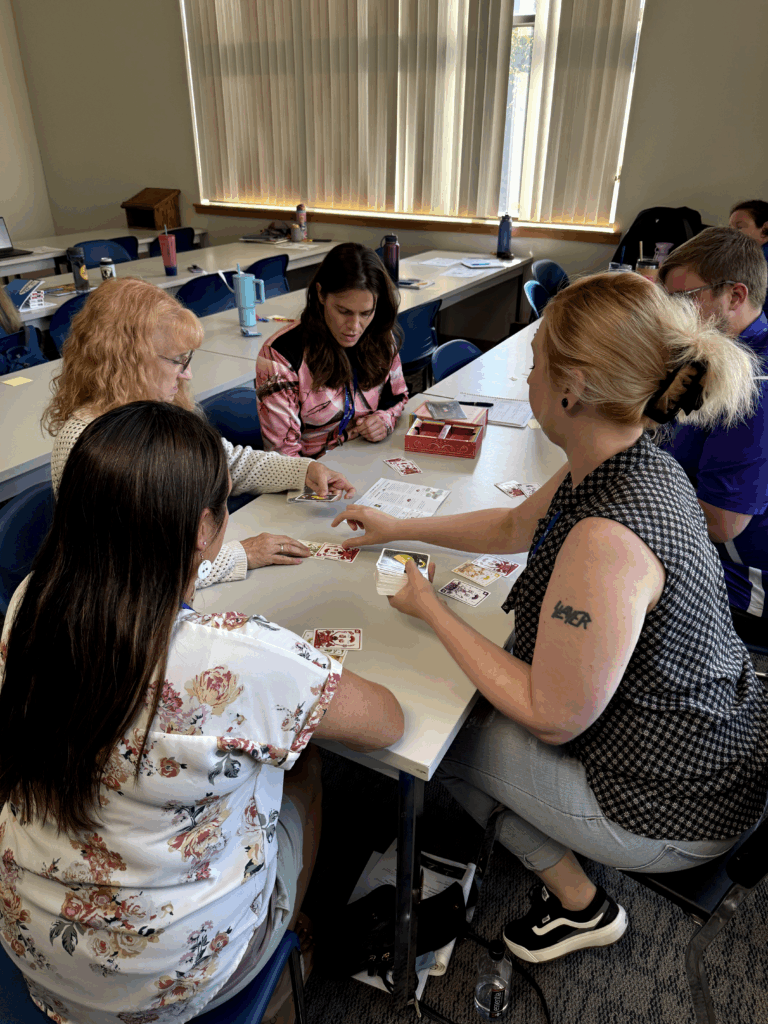On Tuesday, Idaho school districts sought well over $200 million in bond and levy approvals from local voters to defray costs caused by the State of Idaho’s decades of chronic underfunding.
By and large, voters chose to pass these measures — in some cases, breaking years-long droughts — but not all. Ten of the 51 bonds and levies on Idaho ballots failed, with major repercussions to students and families like educator layoffs, program cuts and even school closures.
The measures were put before voters to fund everything from new school buildings and badly-needed facilities repairs to school buses and special education programs.
“The vast majority of Idaho voters showed, once again, that they truly value the quality of their children’s education,” says Layne McInelly, Idaho Education Association president. “The fact that districts must seek this funding from local taxpayers at all is proof of the state’s chronic underfunding of public schools. While IEA members are very thankful for the support voters showed their local students, educators and schools, it’s clear that policymakers must step up and fund schools adequately and equitably.”
LEARN MORE ABOUT IDAHO’S CHRONIC UNDERFUNDING OF PUBLIC EDUCATION
In all, school districts sought $209 million in bond and levy measures on Tuesday. CLICK HERE to read a full accounting of the state’s bond and levy results. Here are a few highlights from those races:
After Years of Waiting, Salmon Gets $20 Million for School
It took more than 15 years and an astounding 12 failed attempts, but 72% of Salmon voters rallied behind a $20 million bond to replace Pioneer Elementary School. The school, which has become emblematic of the state’s failure to properly fund school facilities, is more than 70 years old and endures a litany of problems: failing plumbing that backs up into the kitchen, uneven and broken floors, a failing roof and a cracked foundation — among many other issues.
After early bond attempts failed, the school district applied for money from a special $25 million state fund for a new school. The state approved only enough for seismic reinforcements and a new roof; to save money, Salmon was forced to close its middle school and put students in portable classrooms instead.
Voters Approve Funds for Teachers, Resource Officers in West Ada
West Ada, one of Idaho’s most populous school districts, needs hundreds of millions of dollars to keep up with demand. Earlier this year, when Governor Brad Little signed a bill allocating $1.5 billion in funding for school facilities, he traveled to West Ada to present a check for $150 million.
Tuesday’s two-year supplemental levy vote addressed the personnel needed to meet the needs of the district: Voters approved $27.7 million for 152 teachers and 19 resource officers. West Ada leaders had warned that failure would lead to layoffs, but the measure passed with a comfortable 58 percent of the vote.
Kuna Voters Reject Supplemental Levy
In recent years, Kuna has morphed from a sleepy town to a booming community, experiencing more than 300 percent growth since 2000. Kuna School District leaders have asked voters for funds as they struggle to keep up with demand: In 2023, they proposed $111.4 million for a new elementary school, upgrades to Swan Falls High School, and renovations for middle schools in Kuna and Fremont. That earned more than 58 percent of the vote but failed to clinch the supermajority needed to pass.
Some Kuna classes have ballooned to nearly 40 students because of the lack of funding. The district is expected to grow from 6,000 to 10,000 students over the next 10 years or so.
This year, the district asked for a $10.6 million supplemental levy for 15 additional educators and facilities maintenance. That measure failed with 43 percent; fewer than 5,000 people voted on the levy.
Allison Westfall, spokesperson for the district, put out a statement: “During the coming days, we will work to identify how to adjust our spending as we finalize our budget for 2024-25 for the school board to consider in June.”
Failure of West Bonner Measure Continues Turbulent Streak
The West Bonner School District has seemingly seen it all in recent years: political turmoil, budget shortfalls, accounting errors, the recall of two trustees, and a disastrous experience with an unqualified superintendent. Last year, West Bonner put forth a levy that failed but was able to stumble along thanks to the remnants of its pandemic emergency fund.
This year, voters again rejected a levy, this time for $4.6 million. The levy was intended to fund West Bonner’s entire athletics and extracurricular budget, building maintenance, new buses, child nutrition, technology, curricular materials, and salaries and benefits for staff and educators.
The results are expected to be catastrophic. Sandy Brower, a member of the Priest River City Council, warned attendees at a March 18 school board meeting that the entire district will fail without funds from the levy.
Voters in Caldwell Fail to Renew Supplemental Levy
The Caldwell School District needs to pay for school safety, operations and athletics and extracurricular activities — but, thanks to the failure of a $8.2 million levy, they’ll face wrenching choices instead.
The levy, which would have been a continuation of the district’s existing levy, would have been used for everything from school resource officers to transportation costs to equipment for the football team. The current levy will expire on June 30.
As the district warned, it will now be forced to cut millions in the form of programs and staff.
Showing Up Makes the Difference in Wilder, Ririe
The fate of a $2.735 million special levy to fund Wilder’s participation in the Canyon Owyhee School Service Agency (COSSA) came down to just two votes. The levy passed on Tuesday.
Ririe, which has struggled in recent years to pass bonds, will finally receive $1.5 million for basic maintenance like new hot water boilers, classroom heating units, roof repair and more. The bond needed a 66.67 percent supermajority to pass, and it squeaked by with 67 percent of the vote.
“Without those two voters, Wilder might not have had access to special education and career technical education services,” McInelly says. “A handful of voters in Ririe prevented the major structural damage we’ve witnessed in schools around the state. These two instances are an excellent reminder of why every single vote counts when it comes to our students and educators.”
You can dive into a full roundup of results from Idaho Ed News here.




